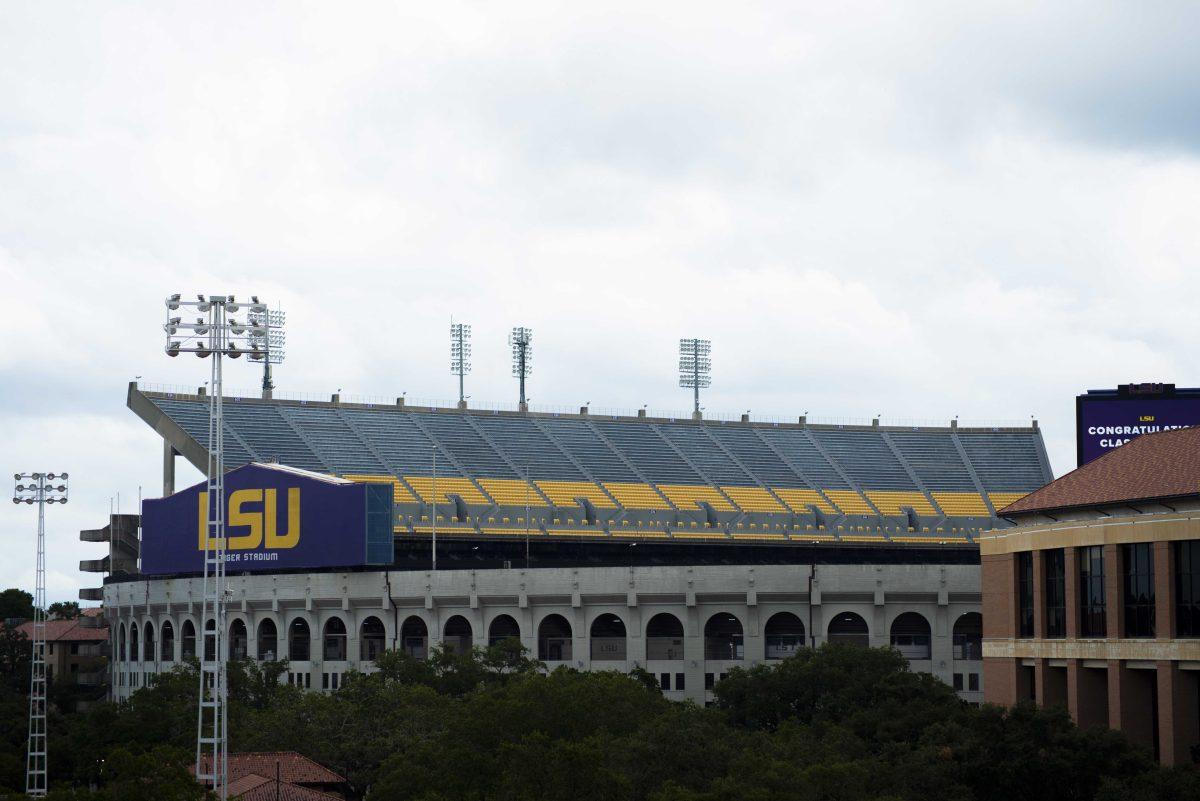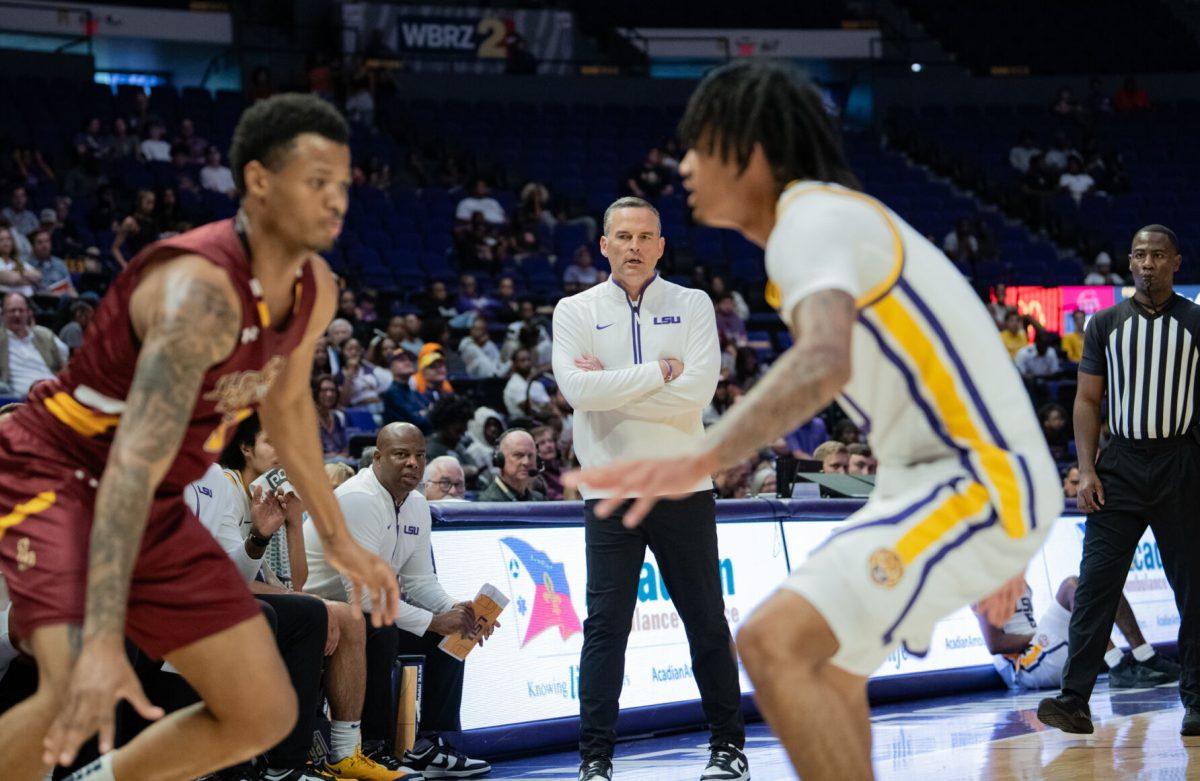There is no question that the Louisiana economy is dependent on LSU Athletics, especially in Baton Rouge. Regardless of how you enjoy your Saturdays, LSU Football does wonders to the local economy. Every home football game in the fall brings over 100,000 people to Death Valley, with thousands more watching in nearby restaurants and bars. Even if you’re watching from home, you’ve probably ordered a pizza or wings and bought drinks.
As a first-year, out-of-state student, I experienced this first-hand last season. Last November, I made the trip to Baton Rouge from Maryland for a campus tour and a football game. There were no doubt thousands of other fans doing the same thing I did all season long. I even saw a few folks on my plane out of Baltimore wearing the purple and gold. Between hotels, rental cars, food, parking, game tickets and souvenirs, families like mine likely spend thousands, maybe even millions, every weekend.
Dr. Loren Scott, a former award-winning chairman of LSU’s Economic Department and President of Loren C. Scott & Associates Inc., attempted to quantify just how much the local economy depended on LSU Football. He published two studies, one in 2002 and an updated one in 2013. In the first, Scott concluded that fans from outside of the Baton Rouge area, like I was, spent $27.4 million in the city throughout the prior season. In 2013, that number jumped to $47.7 million for out-of-town fans and $65.7 million in total.
In the 2013 study, Scott estimated that the LSU Athletic Department created $397.5 million in sales, $119.7 million in household earnings, as well as 3,948 jobs. The department also generated an estimated $331.6 million during the 2012 fiscal year for Louisiana businesses. Spending during football season creates what Scott calls a ripple effect, meaning when consumers have more money, they spend more money, and that money eventually reaches the outermost parts of the economy, far from the football field, comparing it to the ripples from the original spot if you were to drop a rock in a pond.
LSU football clearly helps local economies, but what about right here on campus? You may have known that in 2019, the football program generated $92 million in revenue, $36.3 million of that coming from ticket sales, good for a $56.6 million profit. But did you know that almost no other sport is able to return a profit? Men’s basketball was able to earn just $453,022 in profit, while baseball earned a slightly higher $464,109. Even the successful gymnastics program has yet to turn a profit, and 12 other sports lost more than $1 million.
It’s the surplus from football that allows other sports to remain operational. With capacity at Tiger Stadium unknown, the results of minimal fans in attendance leading to potentially 75% less ticket sales, the main source of revenue, could be catastrophic. We’ve already seen smaller schools across the country cut sports such as swimming, track and golf as a result of this loss of revenue.
Longtime season ticket owner and Louisiana native Chris Chagnard told me he and his wife decided to defer their season tickets to next season, and he expects thousands of others to do the same.
“We made the decision due to the COVID-19 outbreak and the uncertainty of if LSU would play a full season if the virus got worse,” Chagnard said. “Our decision became final when we were informed that the capacity of Tiger Stadium would be extremely limited, meaning Saturday nights in Death Valley would not be the same.”
We now know there will be games this fall. Now the question becomes how many fans can attend. LSU announced Wednesday that, to open the season, Tiger Stadium would operate at 25% capacity. Fans will also be required to wear face masks, among other safety measures.
“This plan focuses on the health and safety of all those attending football games… By reducing the capacity and taking the year off from tailgating, which puts LSU in line with other SEC schools, the plan allows for fans to be socially distanced in Death Valley” Governor John Bel Edwards said. “…with COVID keeping all of us from celebrating together, nothing can dim the support we have for our LSU Tigers,” Edwards continued.
Nearby restaurants and bars are also making plans to operate at less than 100% capacity.
With all the uncertainty for this season, the local economy as well as LSU Athletics that is so dependent on football will undoubtedly take a hit. Fewer fans, like I once did, will be traveling to Baton Rouge, resulting in less money spent, less jobs created, and damages that could potentially be felt across the state for years to come.
The impact of LSU Football on the Baton Rouge economy
By Taylor Lyons
September 9, 2020
A view of Tiger Stadium stands tall on Tuesday, Aug. 25, 2020, on LSU’s campus.





